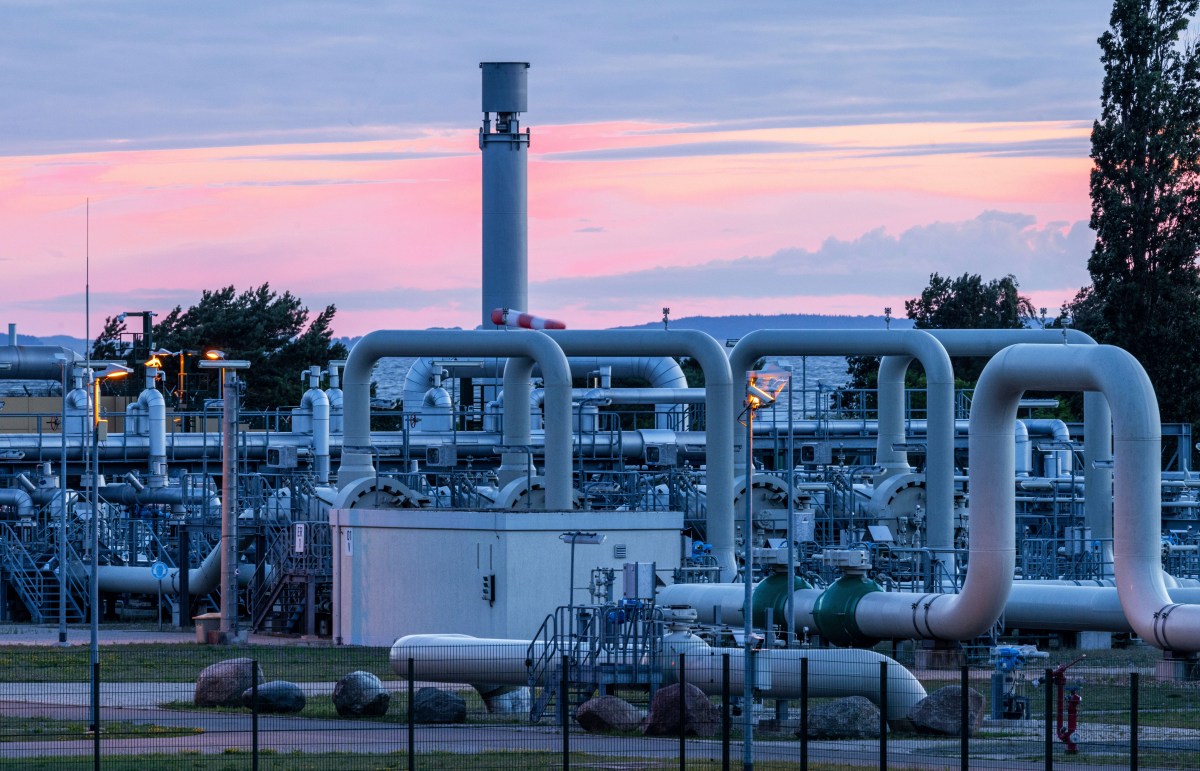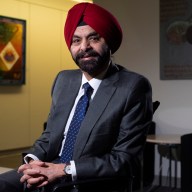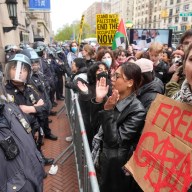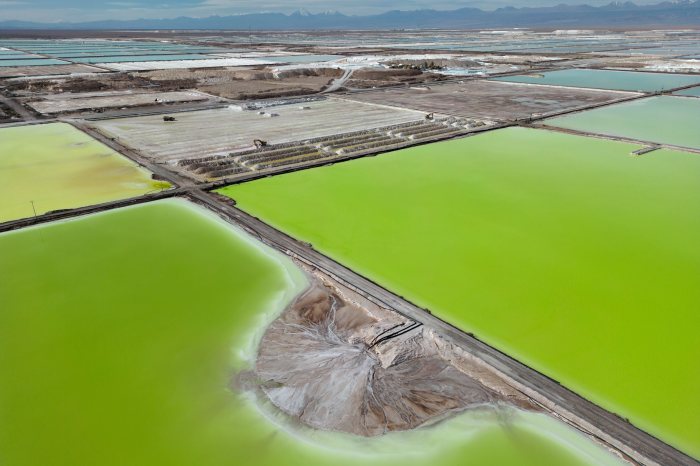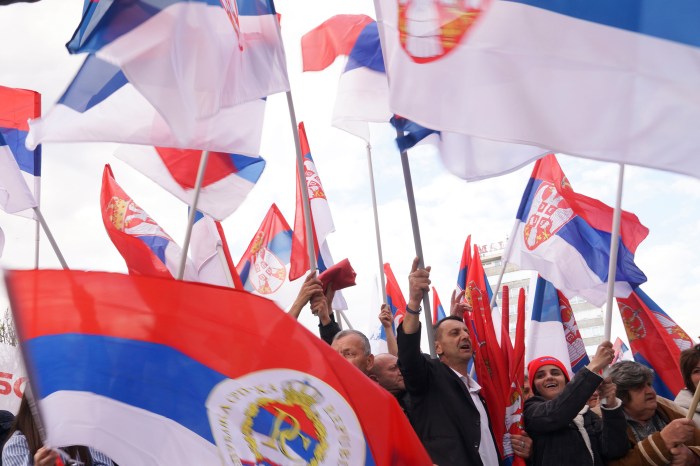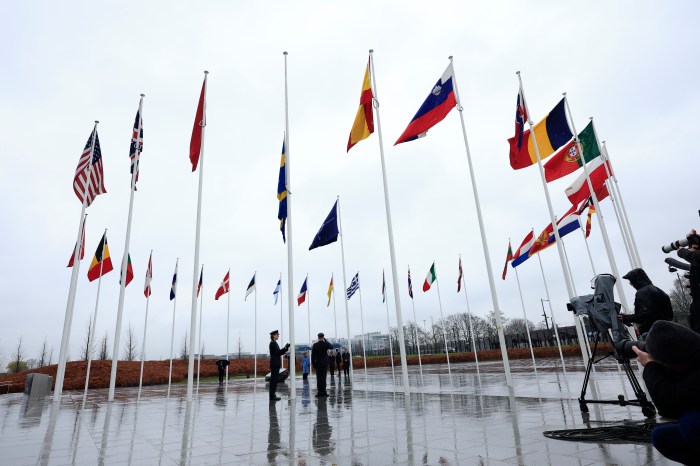BERLIN (AP) — A major natural gas pipeline from Russia to western Europe shut down Monday for annual maintenance as Germany prepared to give the green light for 10 coal-fired power plants to restart because of concerns that Russia may not resume the flow of gas as scheduled.
The Nord Stream 1 pipeline runs under the Baltic Sea from Russia and is Germany’s main source of Russian gas. Gas is usually sent onward to other countries, as well.
The line is scheduled to be out of action until July 21 for routine work that the operator says includes “testing of mechanical elements and automation systems.” The operator’s data showed the gas flow dropping as planned Monday morning.
German officials are suspicious about Russia’s intentions, particularly after Russia’s Gazprom last month reduced the gas flow through Nord Stream 1 by 60%. Gazprom cited technical problems involving a gas turbine powering a compressor station that partner Siemens Energy sent to Canada for overhaul and couldn’t be returned because of sanctions imposed over Russia’s invasion of Ukraine.
Canada said over the weekend that it would allow the part to be delivered to Germany, citing the “very significant hardship” that the German economy would suffer without a sufficient gas supply.
German politicians have dismissed Russia’s technical explanation for last month’s reduction in the gas flowing through Nord Stream 1, saying the decision was a political gambit to sow uncertainty and push up energy prices.
German Vice Chancellor Robert Habeck has said he suspects that Russia may cite “some little technical detail” as a reason not to resume gas deliveries through the pipeline after this month’s maintenance.
The head of Germany’s network regulator, the Bundesnetzagentur, said that “no one can say exactly” whether the gas will be switched back on.
“We have very varied signals from Russia,” Klaus Mueller told ZDF television. “There are Kremlin spokespeople who say that, in combination with the Siemens turbine, they can deliver significantly more again; but there have also been very martial messages from the Kremlin.”
On Sunday, Ukraine’s energy and foreign ministries said the return of Nord Stream 1 turbines “is adjusting the sanctions regime to the whims of Russia.”
In his nightly video address Monday, Ukrainian President Volodymr Zelenskyy predicted Russia would act again to cut off its supply of natural gas to Europe “at the most acute moment.”
“This is what we need to prepare for now, this is what is being provoked now,” Zelenskyy said.
He added that Canada’s decision to allow shipment of the repaired gas turbine would set a dangerous precedent that Russia will exploit “because every concession in such conditions is perceived by the Russian leadership as an incentive for further, stronger pressure.”
Germany and the rest of Europe are scrambling to fill gas storage in time for winter and reduce their dependence on Russian energy imports. Germany, with Europe’s biggest economy, has been receiving about 35% of its gas to power industry and generate electricity from Russia.
Last month, Habeck activated the second phase of Germany’s three-stage emergency plan for natural gas supplies, warning that the country faced a “crisis” and that storage targets for the winter were at risk.
To make up for shortfalls, the German government is preparing to approve a decree Wednesday that will give the green light for utility companies to fire up 10 dormant coal-fired power plants and six that are oil-fueled. Another 11 coal-fired power plants scheduled to be shut down in November will be allowed to keep operating.
Environmentalists have warned that burning coal and oil releases more carbon dioxide than natural gas-fueled power plants, putting Germany’s climate goals at risk. But the government argues that the short-term increase in emissions will be compensated for with new measures to accelerate the installation of renewable energy.
There’s concern in other countries, as well, over the implications of recent reductions in Russian supplies via Nord Stream 1 and other routes.
French Economy and Finance Minister Bruno Le Maire said that a complete halt to Russian gas supplies is a “credible possibility.” He said France has to get in “battle mode” this summer to prepare for winter when “we will have to make courageous choices” because of likely energy shortages.
“We will not be able to keep ourselves warm and act as if nothing has changed,” Le Maire said. “We have to plan and organize now. We have to change our habits, reduce our (energy) consumption.”
Separately, Italian energy company ENI said Gazprom was cutting its Monday gas delivery by about a third compared with the average in recent days. ENI said that Gazprom would provide 21 million cubic meters of gas, compared with an average of about 32 million cubic meters.
Habeck signed an agreement on energy security with his Czech counterpart Monday that ensures the landlocked nation will benefit from new liquefied natural gas terminals Germany is building.
“Russian dictator Vladimir Putin is using energy as a weapon against us,” said Czech minister of industry and trade, Jozef Síkela. “He is trying to expose us to the threat of a complete lack of gas and increase its prices, which leads to the deterioration of the standard of living.”
“Having allies from the European Union on our side is our great advantage in this energy war,” said Sikela. “It is clear that the cooperation with Germany, through which almost all gas flows to us, will be essential for us.”
Associated Press writers Frank Jordans in Berlin, Barbara Surk in Nice, France, Nicole Winfield in Rome and Andrew Katell in New York contributed to this report.
Follow all AP stories on the war in Ukraine at https://apnews.com/hub/russia-ukraine

